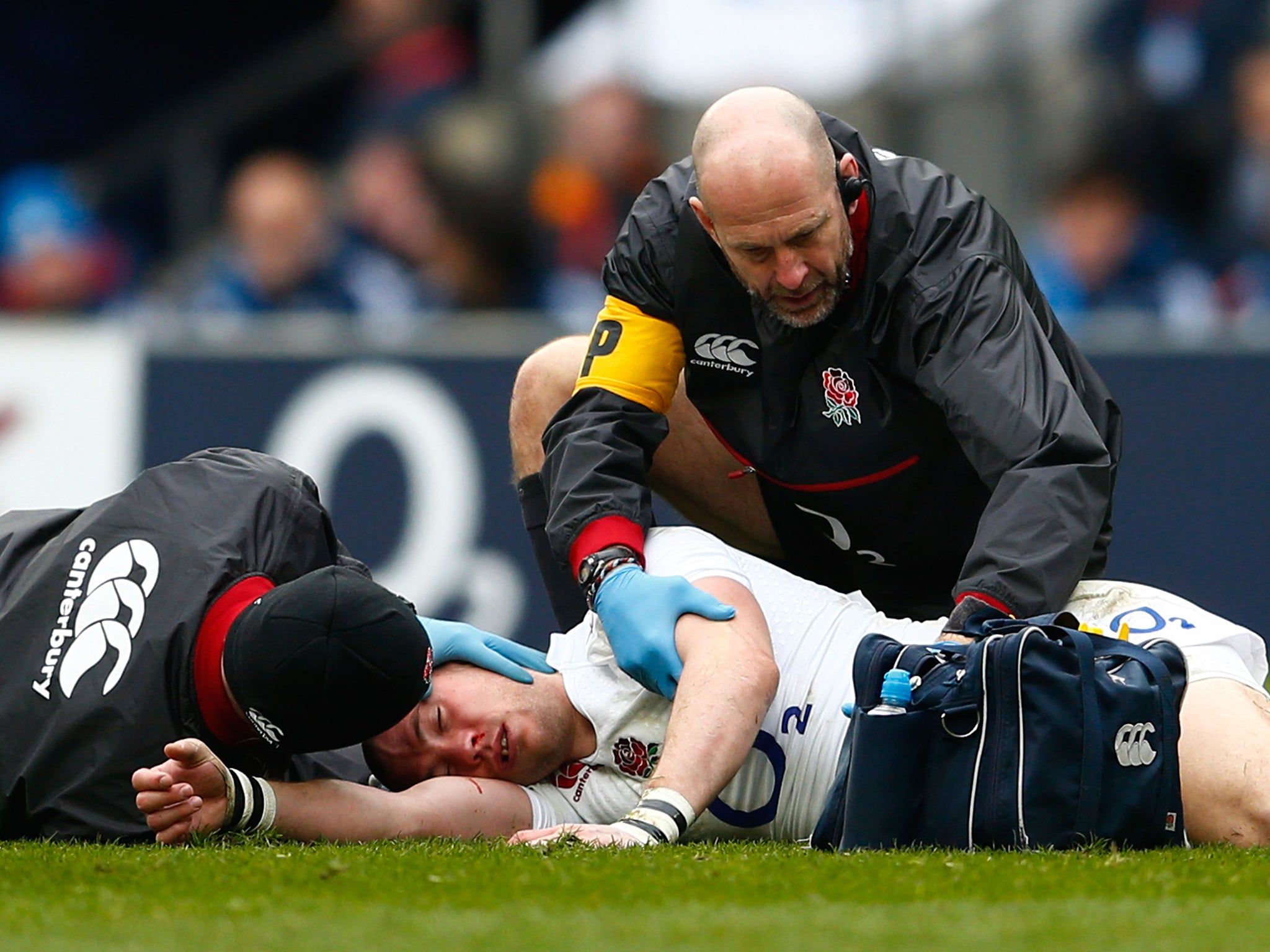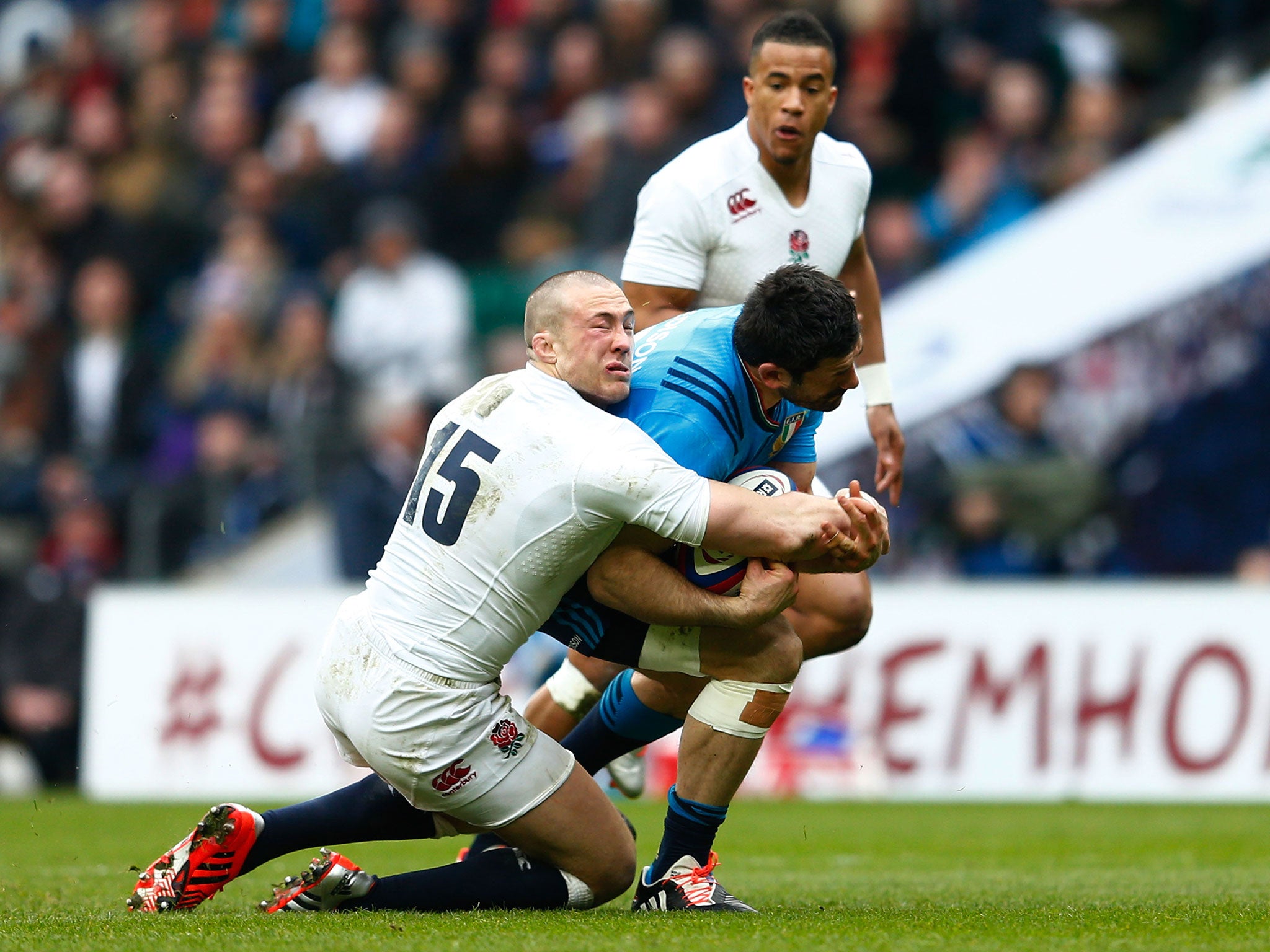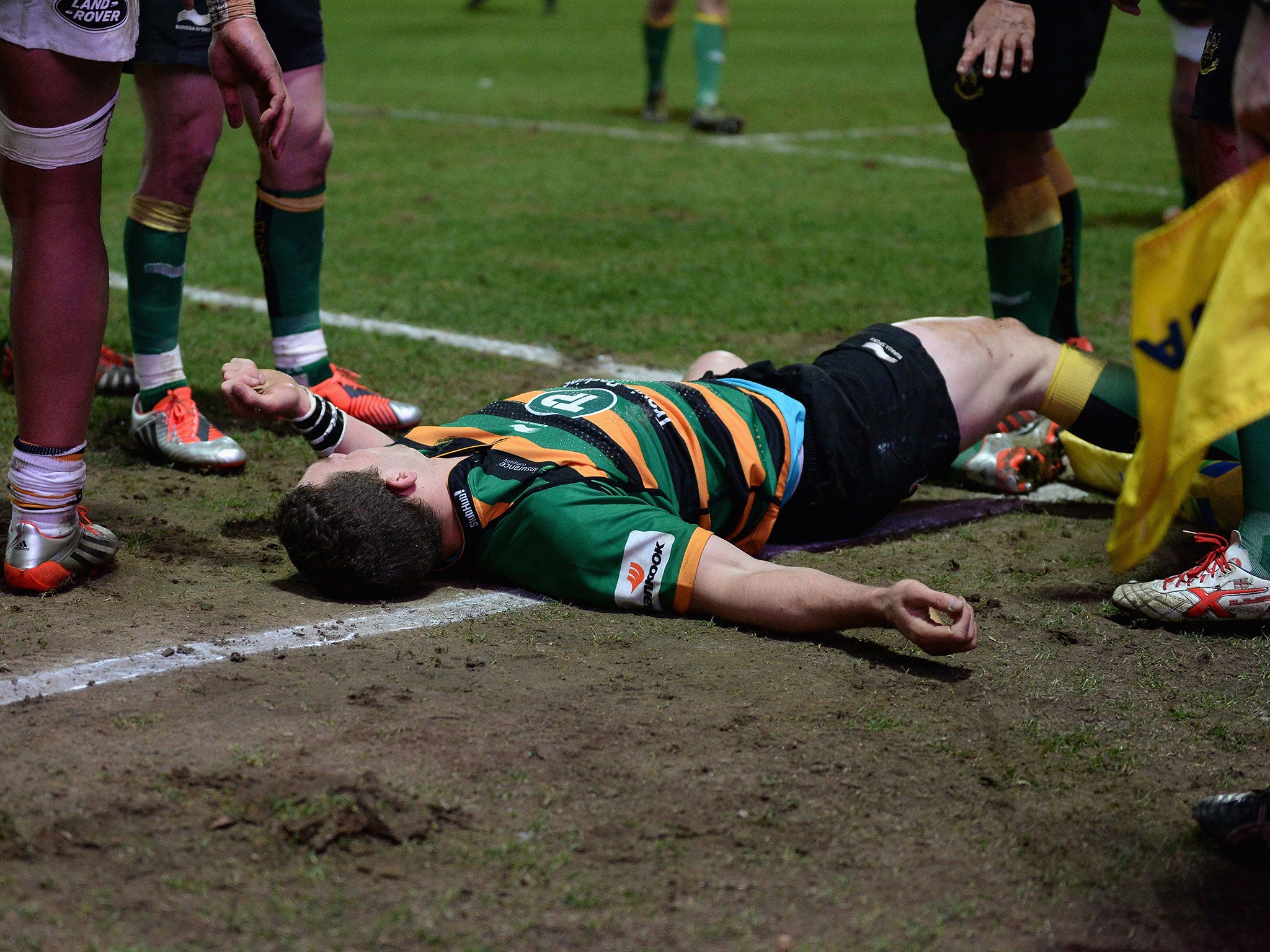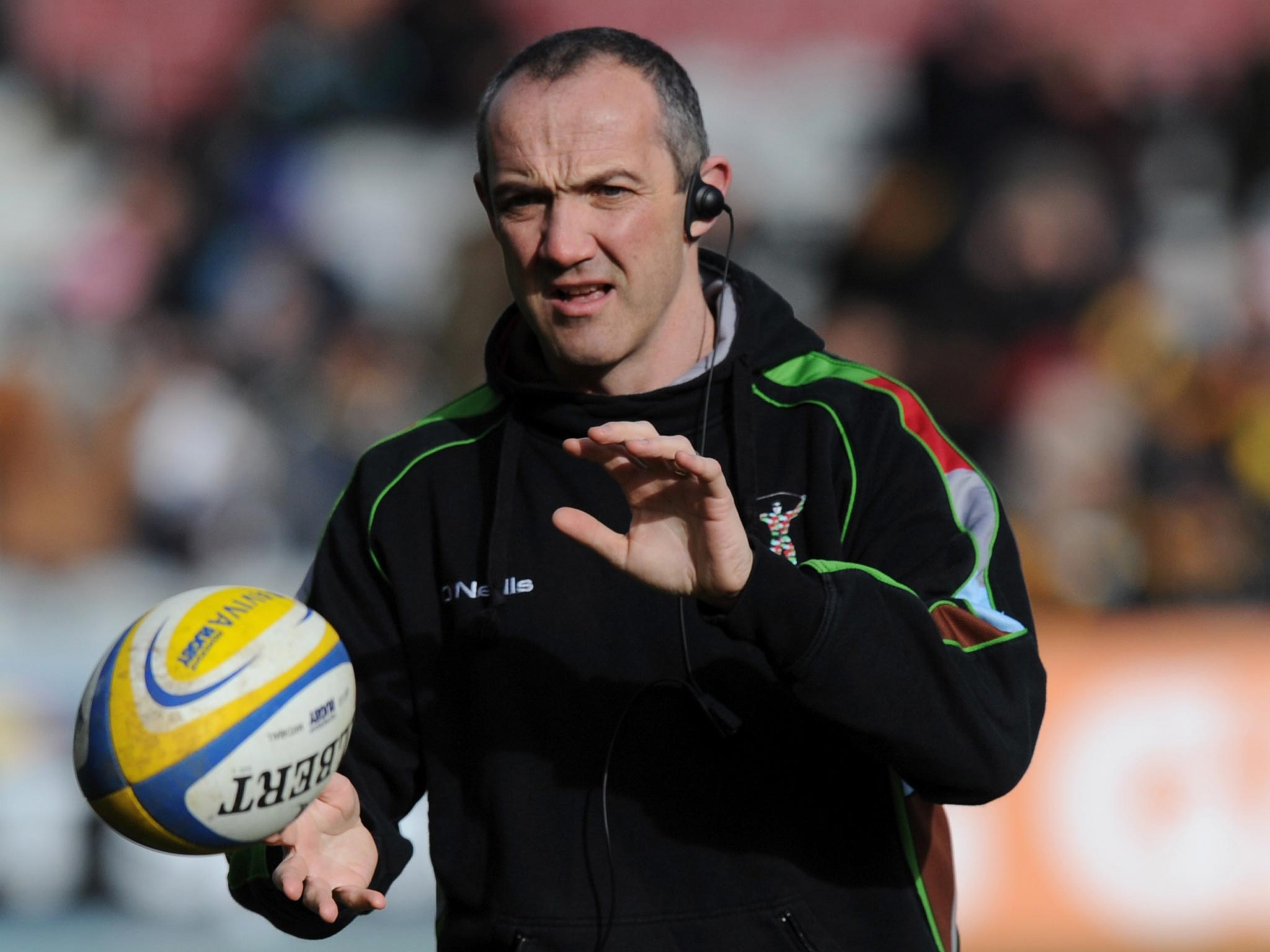Is rugby starting to see sense over concussion?
Two current high-profile cases show concussion is at last being taken seriously, writes Hugh Godwin

Your support helps us to tell the story
From reproductive rights to climate change to Big Tech, The Independent is on the ground when the story is developing. Whether it's investigating the financials of Elon Musk's pro-Trump PAC or producing our latest documentary, 'The A Word', which shines a light on the American women fighting for reproductive rights, we know how important it is to parse out the facts from the messaging.
At such a critical moment in US history, we need reporters on the ground. Your donation allows us to keep sending journalists to speak to both sides of the story.
The Independent is trusted by Americans across the entire political spectrum. And unlike many other quality news outlets, we choose not to lock Americans out of our reporting and analysis with paywalls. We believe quality journalism should be available to everyone, paid for by those who can afford it.
Your support makes all the difference.When George North and Mike Brown are inactive instead of playing the game at which they excel, because of fears over possible damage to their brains caused by knocks to the head, it is clear rugby union is in the midst of epoch-making change.
Yet the truly perturbing aspect of the debate on concussion is that so little is known about its diagnosis and treatment. How long a rest is long enough? No one can say for sure, from the day-to-day rugby medics to the doctors who issue dire warnings of health problems emerging later in life among mishandled players.
The pressing but arguably superficial timeline is the World Cup in England this autumn – a lifetime goal for the likes of Brown, the England full-back, and North, the Wales wing, who have both been stood down after being knocked unconscious in accidental collisions (see case studies).

Brown, 29, has not played for a month and is unlikely to appear for his club Harlequins at Sale next Saturday because he is still reporting “concussive symptoms” – the phrase preferred by Harlequins’ in-house head of medicine Andy Reynolds – including headaches. Until a doctor declares Brown clear, he is banned from any mildly stressful activity.
“Your brain and eyes are closely related,” said Reynolds, “and as we want to lock down that brain and give it as much rest as possible, the player will not be allowed in team meetings, and advised against playing on phones or game consoles, or concentrating on screens and TV. Give them complete rest at the beginning.”
Johnny Sexton, the Ireland fly-half, and Geoff Parling, the England lock, had similar stand-downs earlier this season. But the World Cup dream has died for Ben Afeaki, the New Zealand prop who retired at the age of 27 this month after several knocks. “Four out of seven mornings, I wake up feeling a little foggy,” Afeaki said last year. Declan Fitzpatrick, an Ulster and Ireland prop, gave up last week after multiple concussions.
Brain injury rarely shows up in a scan and the dreaded degenerative condition chronic traumatic encephalopathy – linked by some doctors to dementia and suicidal depression in ex-boxers and American footballers – can only be definitively detected post-mortem. Afeaki and Fitzpatrick decided to play fast and loose with their lives no longer.

When rugby went open in 1995, a game predicated on collisions witnessed rapid increases in the pace of play and aggressive defence. Yet rugby is different to American football, the sport that made a £477m settlement last year with thousands of ex-players who claimed to have been misled by the National Football League on the dangers of head injuries. American football was played with intentional head-to-head contact, whereas almost every head knock in rugby is accidental.
Still, there are fierce critics of rugby and its regulators. Dr Barry O’Driscoll resigned from working with World Rugby (the global governing body) and three days ago posted an open letter to its chief executive Brett Gosper, rubbishing the Head Injury Assessment (HIA) that can allow a player suspected of being concussed in a match to be examined and continue playing. World Rugby responded that the number of players cleared to play on who were later determined to have concussion had dropped from 56 per cent to below 12 per cent. They said: “Our message to everyone involved in the game... is simple – recognise and remove.” The clumsy episodes of North and New Zealander Josh Hohneck playing on after knocks that were not spotted will surely bring improvement of in-match monitoring.
Dr Willie Stewart, a Scottish neuropathologist and independent advisor to World Rugby, is angry that their group tasked with reviewing the laws of the game with concussion in mind will not convene until after the World Cup, with any recommended changes to be made in 2018. “Sport should be working full tilt on blood tests or brain scans or maybe physical, not psychological, tests of brain function,” he told the IoS. “But I feel there is a reluctance to do it.”
How prevalent is the problem? The RFU’s annual injury audit says concussion is rugby’s most common injury. Reynolds said Harlequins see “one or two” players a season with significant problems like Brown’s. Another eight to 10 have symptoms that turn out to have other causes or clear up quickly.
But it has become depressingly commonplace in rugby to see young athletes carted off with injuries. Damian Hopley, chief executive of the UK Rugby Players’ Association, told the IoS: “The NFL class action was about covering up information, whereas we’re trying to be incredibly transparent. The hard thing is getting fellow players to recognise there has been a significant injury and so that player is being rested, and respecting all that goes with it.”

What if studies of younger players find that simply playing the game shakes brains to a dangerous degree? Conor O’Shea, director of rugby at Harlequins, played in that generation when he finished a match in a daze unable to remember where he’d left his kitbag, but kept quiet so as to be available for selection four days later. Harlequins are setting a better example.
“Nobody is sure where all this will go,” O’Shea said. “If Mike Brown is not fit again this season, it doesn’t matter as long as we get him right. I want to meet these players 20 years from now and for them to be healthy and talking about nothing more than old knocks and scrapes.”
Join our commenting forum
Join thought-provoking conversations, follow other Independent readers and see their replies
Comments